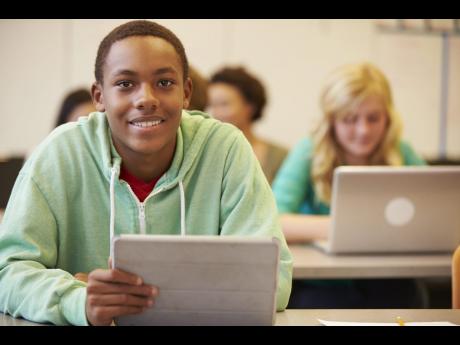GLEANER: If we say that the world has changed, it would be as cliched as saying that we use smartphones, which, apart from being a desired piece of technology to own, has brought information to the palms.
When was the last time you needed information and consulted a library or even an actual physical book? Certainly for in-depth research, one would consult research papers, books by experts, but the first thing you did was to whip out your phone, open its browser and “Googled it”.
From that web search, it led you to the correct resources whether books, newspaper articles or research papers you may have needed. If this is how we currently access the world, and we agree that the world is changing every day and we are raising the first generation to never live without the Internet, why doesn’t their learning reflect this? In 2017, are our children still going to the “computer lab” for “computer class”? or going to the library to do research?
To access this article today, you may have bought a physical newspaper, you may have subscribed to the app, or you may have logged on to the Jamaica Gleaner website, and many more still would see a thumbnail to a link on various social media platforms. they will read it on their phones, on their tablets, or go “old school” and sit on their verandas and turn page by page. This is because with access come options, and with options comes power, and with power – well, the world, as they say – is your oyster.
Blended learning – with technology combining the traditional classroom approach integrated within schools – should be standard. For one, infusing technology maximises learning potential and human potential.
The case is currently being made to introduce zoning in schools in Jamaica, which might yield limited choices for parents to choose a school of their choice for their children. But imagine delivering instruction in a format that might be an answer to zoning.
It isn’t hard to imagine because we as adults participate in online degrees, webinars, and conferences online. We are able to speak to experts in any given field at the touch of a button. We participate in concerts live from thousands of miles away because we have been practising blended living for so long. why is this not so in our schools?
The future of learning is exciting because learning is becoming more personalised than ever. Sure, employers want employees who are able to use PowerPoint and Excel, maybe even code an app, but technology consistently presents the “user experience”. When our children are in a school system they might not access to technology as the world knows it. It forces the student to live in two worlds. It limits their thinking, their imagination, creativity, and how they learn.
Education that infuses technology as part and parcel of life seamlessly integrates children with best practices of access to technology and allows them to be responsible citizens in using it. While many services we access have started charging for physical access, there is the need to think beyond the physical textbooks, which are an expensive proposition.
REAP THE BENEFITS
Within the E-learning framework, using the E-version of the text allows schools to always use the latest version of the text. it is, of course, cheaper for all stakeholders and allows the student to reap the benefits of having the very best instruction.
In everything, there is a requirement of balance. the world is built on efficiency, using the right tools to get the job done right the first time. however, positioning a “basic need” as a privilege lends itself to misuse and abuse. Institutions of learning with technology infused within the curriculum integrate the use of electronic devices in the classrooms. This abandons the desire for misuse, and leaves room for communication with children about being responsible users and how to navigate the “muddy waters”.
Parents are always concerned with the amount of “screen time” their children have. We want them to “go outside and play”, actually get dirty, even know what dirt is, we limit their screen time to the weekends or as a form of punishment partly because even though technology is undeniably within our own DNA, we ask our children to “gear down” when it comes to interweaving it within their own lives, even though when we are stumped, we ask them to intervene and fix it for us.
It is hypocritical to insist that we expect 100 per cent digital immersion, but we ask our children to “gear down” at school, where they spend the majority of their day.
The goal of education is access, which goes beyond an A or a 4.0 GPA. it is levelling the playing field. Access gives opportunity and provides a space to mould oneself into the best fit. our children deserve access to the very best education Wi-Fi can buy.
– Article courtesy of the American International School of Kingston (AISK), a global centre for excellence in education. Send feedback to [email protected].


